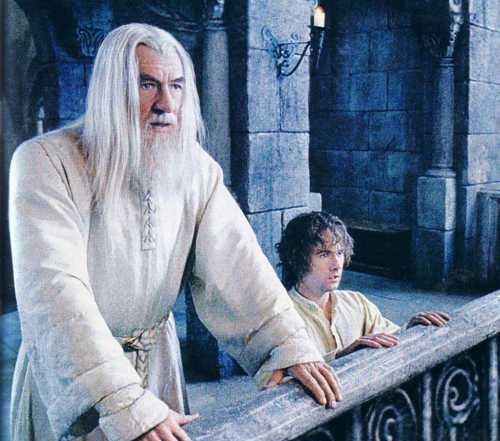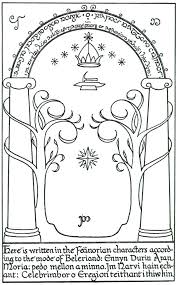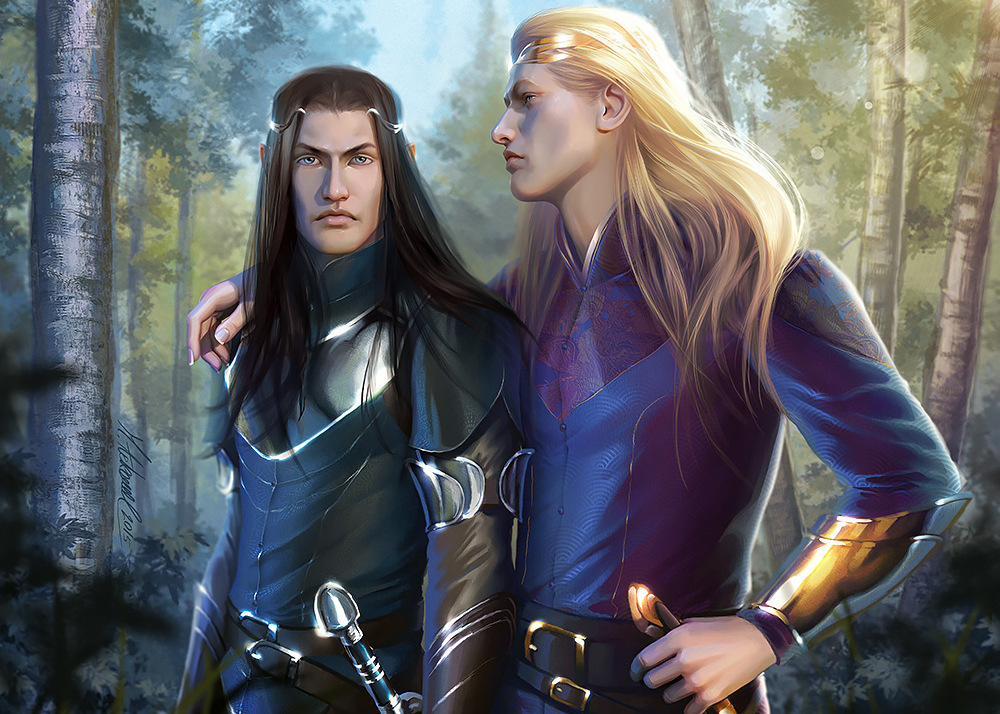The Fellowship of the Ring by J.R.R Tolkien (Harper Collins 1991) pp.371-375
“His longing for the Ring proved stronger than his fear of the Orcs, or even of light.” So said Gandalf to Frodo in the study at Bag End when he spoke to Frodo of Gollum, of the way in which, two years after the Ring left him in order to find its way back to its master, the Dark Lord who was calling it back to himself, Gollum had emerged from the darkness beneath the Misty Mountains in order to find the Ring and to revenge himself upon the “thief” who had stolen it, Baggins.

And it is the same desire that has driven his pursuit of the Fellowship since first he came upon them in the Mines of Moria. Somehow he had managed to escape the turmoil that followed the fall of the Balrog with Gandalf at the Bridge of Khazad-dûm and although his fear and loathing of Elves or anything elvish prevented him from entering Lothlórien, he had waited, hiding in the woods by the Silverlode, until the journey of the Fellowship began once more.
Aragorn has been aware of him all the time and has known who it has been that has been following them. On the one hand this is because he is one of the great trackers of the age, but it is also because he caught Gollum once. He had found him by a pool in the Dead Marshes, hunting for food and had driven him all the way to the Woodland Realm of the Elves in Mirkwood where Thranduil was to hold him prisoner. But he was not a prisoner for very long. Sauron had a purpose in mind for Gollum and that was to use his desire in order to help in the search for the Ring and so he was freed during an attack by orcs upon his guards and so had been hunting ever since. Probably it had been his intention to make his way through Moria from east to west and then to walk across Eriador all the way to the Shire and so track his mortal enemy down and to regain the Ring.
Although Gollum had dreams of becoming “Gollum the Great” once he had regained the Ring and of paying everyone back for all their mistreatment of him, as he saw it, Sauron had no fear of him. He knew that if ever Gollum were to find the Ring again he would be certain to use it, and as often as possible, and so it would not be long before his servants would track him down and to bring the Ring back at last to its Lord.
And so it is that Gollum has been floating upon a log down the Anduin in pursuit of the Fellowship and why he tries to climb onto the small island in the river where the the boats are moored where Frodo is sleeping even though Aragorn is there also. But Frodo is alert and draws Sting and Gollum quickly makes his escape.
“We shall have to trying going faster tomorrow,” says Aragorn to Frodo. “I wish I could lay my hands on the wretch. We might make him useful. But if I cannot, we shall have to try and lose him.”

By driving their boats forward on the river the next day the Company are able to lose Gollum for a while but all such efforts are ultimately useless. Gollum’s desire for the Ring is so great that again and again he manages to find his way back to it until all comes to a head at the Cracks of Doom upon Orodruin. As Gandalf put it to Frodo Gollum has “no will left in the matter. If ever there was a time when Gollum had possession of the Ring it was very brief. He has never possessed the Ring. The Ring has always possessed him. He may think that he desires the Ring but it would be more true to say that desire has taken possession of him and will never let him go. There will be moments when the “little corner of his mind” that is still his own will emerge but that corner is very small and desperately weak. It will be his desire that will drive him on.























